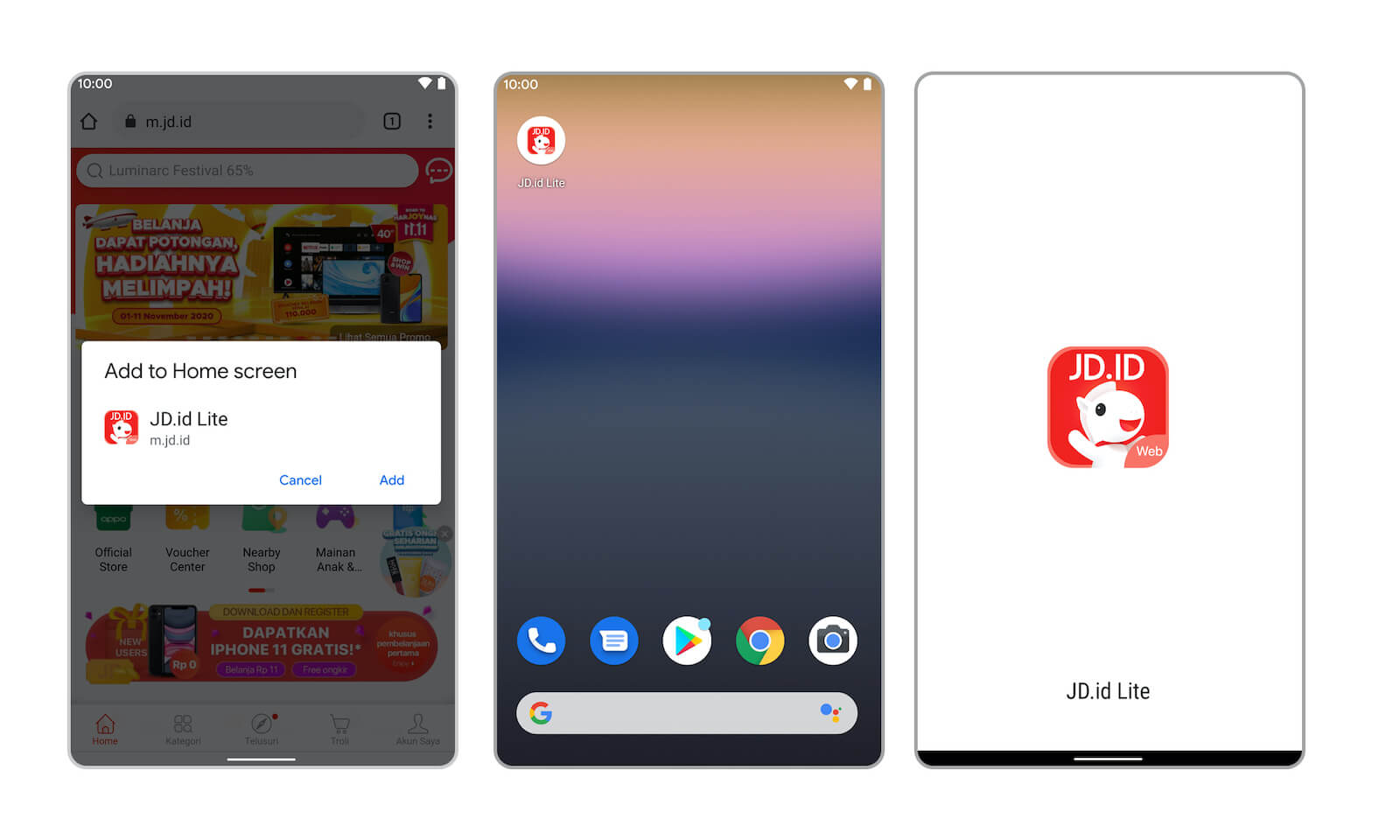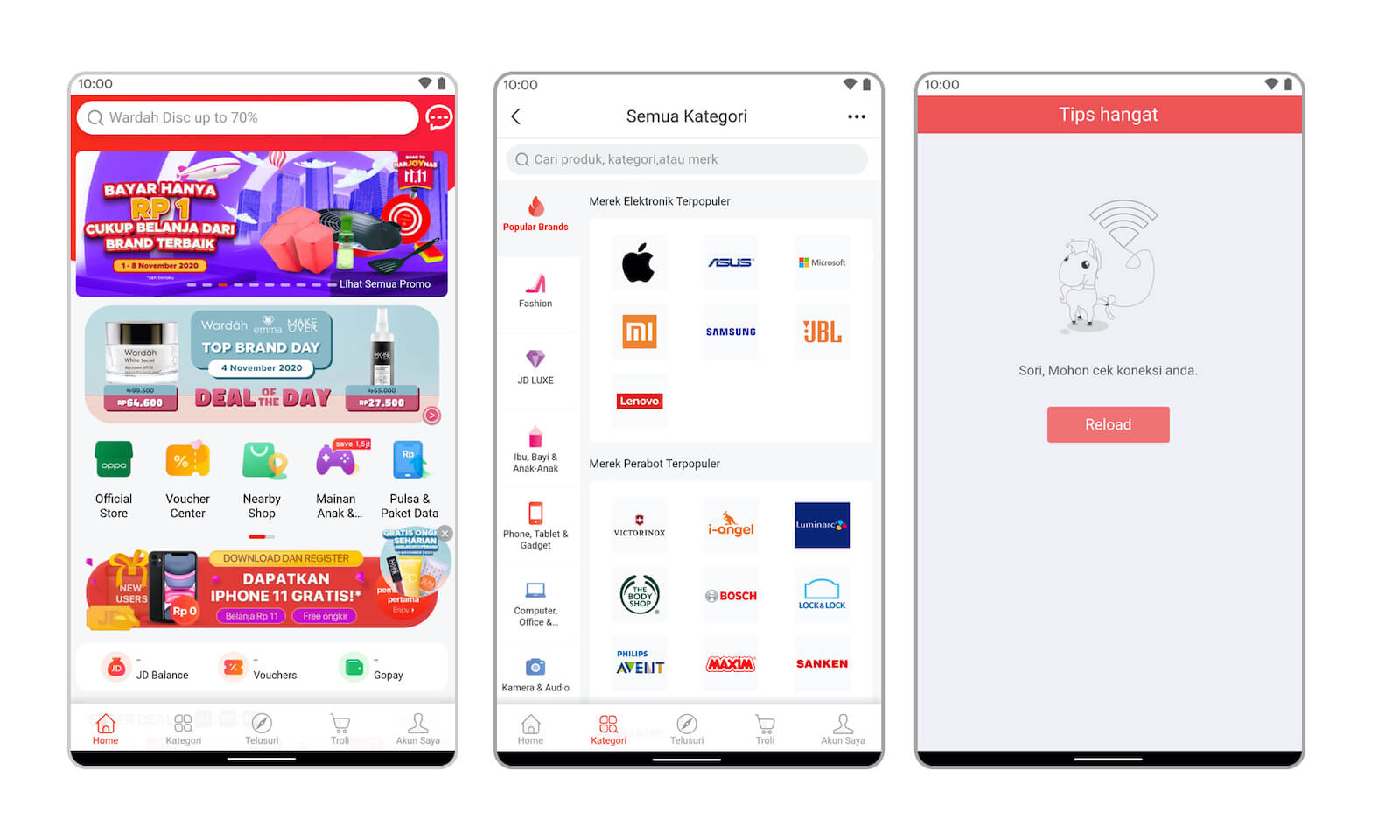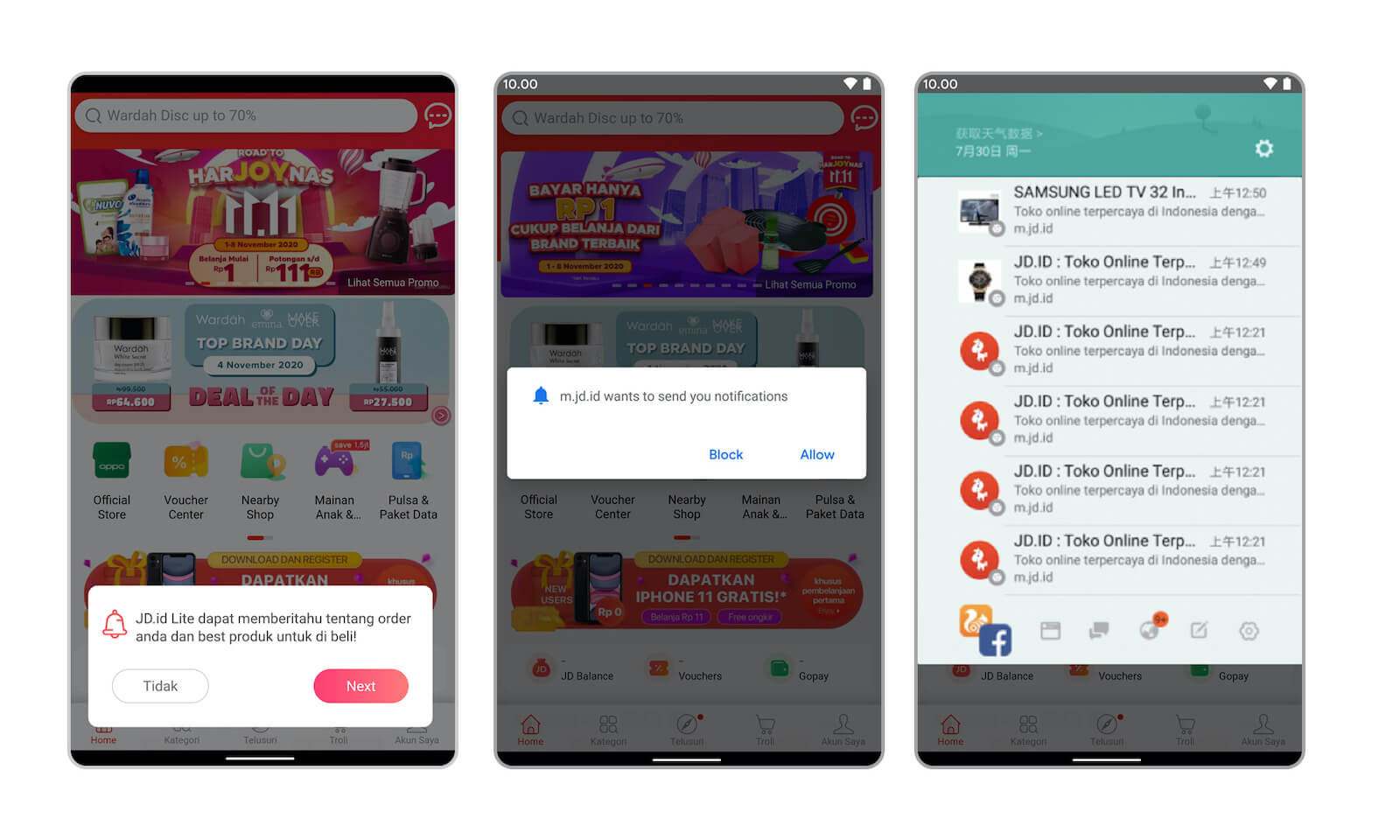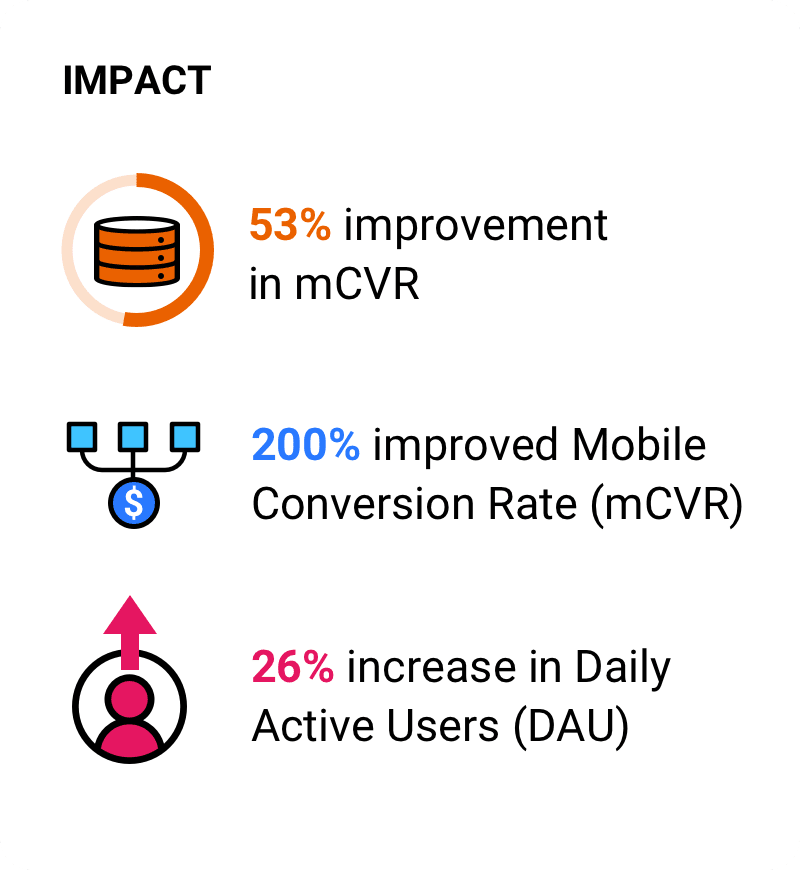How JD.ID increased its overall mobile conversion rate (mCVR) by 53%, mCVR for installed users by 200%, and daily active users by 26%.
JD.ID is an e-commerce platform in Indonesia providing delivery services for a wide range of products including electronic devices, household appliances, clothing, fashion accessories, and sports products. Currently operating across more than 350 Indonesian cities, JD.ID wanted to expand its online presence further by focusing on performance and a strong network-independent experience for their Progressive Web App (PWA). With this enhanced experience, JD.ID was able to increase its overall mobile conversion rate (mCVR) by 53%, its mCVR for installed users by 200%, and its daily active users by 26%, putting it on course to becoming the most popular and trusted e-commerce company in the country.

Highlighting the opportunity
To overcome the unstable mobile networks in Indonesia due to the vast number of operators, JD.ID was looking for a solution that would keep its website and user experience performing at all times, as well as solve any local caching issues. It saw huge acquisition potential from users that had visited its website but not downloaded the iOS/Android app. To capture this opportunity it used PWA best practices to help build an app-like UX on its website to enhance engagement, with a focus on network resilience for dependability.
The approach
Caching strategies
To mitigate network issues and improve user experience, the JD.ID team used Workbox to ensure its PWA performed well even when the user was offline or on a bad network. Workbox made it easier to execute their PWA caching strategy, which consisted of 3 parts:
- Network first, falling back to cache: This strategy aims to get a response from the network first. Once a response is received, it passes it to the browser and saves it to a cache. If the network request fails, the last cached response will be used. JD.ID applied this strategy to the homepage to ensure that users can access the homepage even if they're offline.
- Cache first, falling back to network: This strategy checks the cache for a response first and uses it if available. If not, the JD.ID website goes to the network, caches the response, and then passes it to the browser. When the service worker gets installed, it will have the static resources of the homepage, offline fallback page (explained below), category page, product page, shopping cart, and settlement page cached into the user's cache in advance. When the user routes to any of these pages, this caching strategy ensures the browser gets the static resource files from the cache directly, improving the loading speed of these critical pages.
- Network only: This strategy forces the response to come from the network only. JD.ID uses this strategy for the shopping cart and settlement page because those pages require very high data accuracy.
Workbox also enables JD.ID to configure routing rules, the default duration of request timeouts, the number of responses that can be stored in the cache, and the duration of how long responses should be cached.
Offline fallback page
The JD.ID team created an offline fallback page to provide users with a consistent experience and enhance the branding for the website. They also added a web app manifest which enables users to easily install the web app on their mobile device.

Push notifications
Additionally, for further re-engagement, JD.ID implemented push notifications with Firebase Cloud Messaging for Web, applying them specifically during product sale promotional events.

Overall business results
- Overall mobile conversion rate (mCVR) improved 53%
- mCVR for users who installed the JD.ID PWA improved 200%
- Daily active users from mobile platforms increased 26% due to increased re-engagement from push notifications

Our business is growing rapidly and we have a deeper focus on improving our user experience. We aim to become the most popular and trusted e-commerce company by constantly striving to provide services and a variety of products to all users and customers in Indonesia. Web performance and PWA are a crucial part of our UX and overall strategy and we will continue to invest in these areas.
Fengxian Liu, Web Engineering Manager, JD.ID
Check out the Scale on web case studies page for more success stories from India and Southeast Asia.
